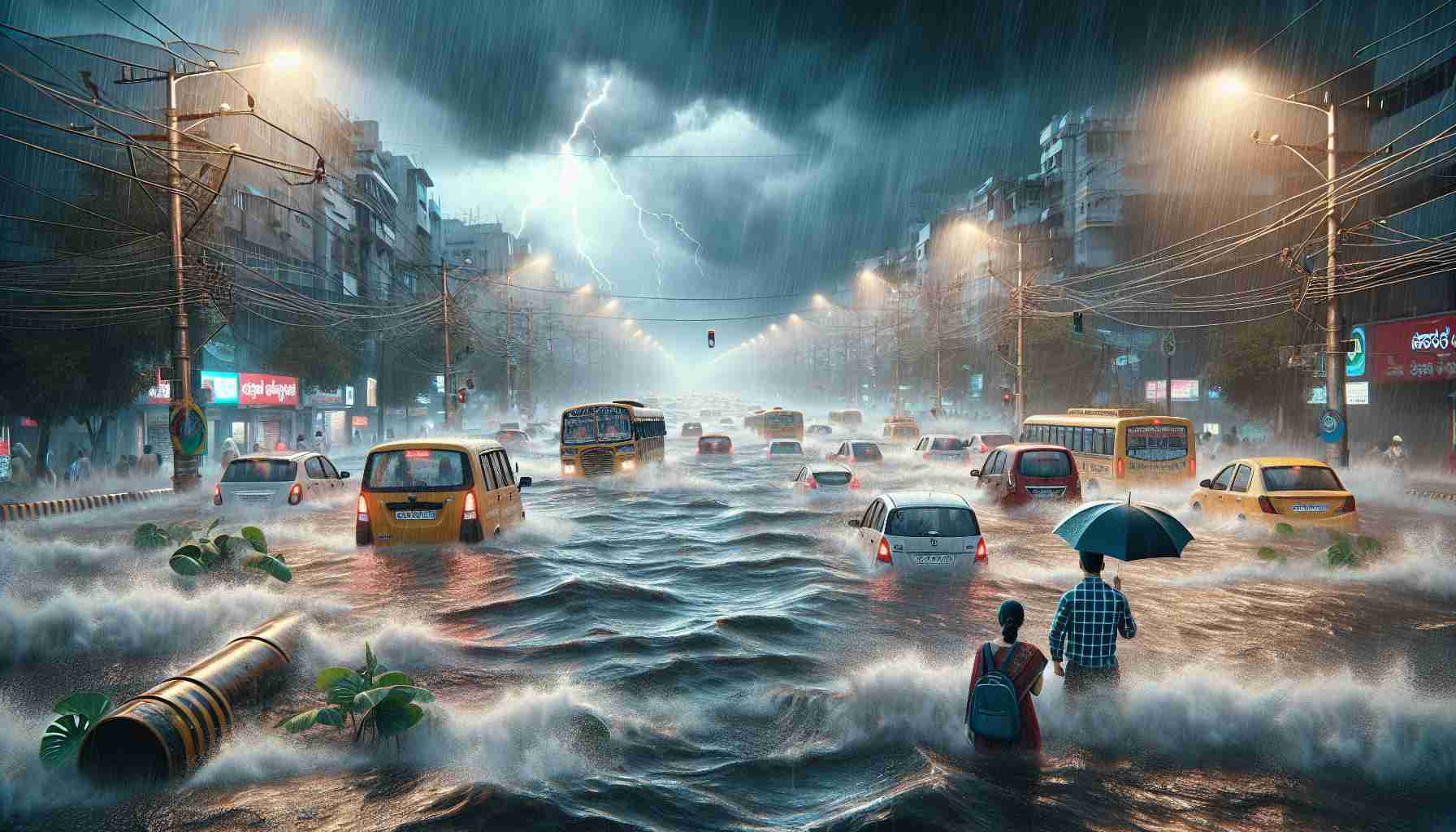In a dramatic turn of events, Bengaluru has been hit hard by torrential rains, prompting emergency response teams to spring into action. Over a 24-hour period, the city recorded a staggering 66.1 mm of rainfall by Wednesday morning, leading to widespread waterlogging and obstructed roadways.
Rescue operations were intensified in Yelahanka, particularly at the Kendriya Vihar Apartment complex, where residents found themselves trapped due to significant flooding. The quick-thinking disaster response team utilized tractors to evacuate those affected. These dramatic scenes have gained considerable attention across social media platforms, highlighting the urgency of the situation.
Many citizens have voiced their frustrations about the lack of adequate drainage systems and infrastructure, questioning government accountability regarding local tax revenues. Concerns about the state of the roads and drainage systems have prompted a call for immediate action from local authorities, emphasizing the need for a long-term solution to prevent future incidents.
As the downpour continues to disrupt daily life, Deputy Chief Minister D K Shivakumar has urged residents to exercise caution. He reassured the public of the government’s preparedness to tackle the aftermath of the rain, stressing that he would confer with officials later in the day to assess the growing challenges. Schools were closed and businesses allowed employees to work remotely as the city grappled with this natural catastrophe.
Surviving the Downpour: Tips, Life Hacks, and Facts to Navigate Bengaluru’s Torrential Rains
As Bengaluru faces the challenges posed by torrential rains and the resulting flooding, residents can adopt certain tips and life hacks to manage the situation effectively. These insights will not only help during such emergencies but can be beneficial for future planning as well.
1. Stay Informed and Prepared: When heavy rain is forecasted, make sure to stay updated through reliable weather apps and local news. Having access to real-time information allows you to prepare for sudden changes in weather.
2. Create an Emergency Kit: Assemble a kit that includes essentials such as water, non-perishable food, a flashlight, batteries, a first-aid kit, and important documents. This kit will be invaluable in case power outages or evacuation becomes necessary.
3. Use Sandbags: If your home is prone to flooding, consider using sandbags to prevent water from entering. Even a temporary barrier can help redirect water and minimize damage.
4. Elevate Important Items: When heavy rains are forecasted, make sure to elevate any important items, including electronics and sentimental belongings. Storing them at a higher level can prevent water damage.
5. Plan Your Commute: Avoid roads that are known to flood easily. Instead, map out alternative routes that are less vulnerable to water accumulation. You can check live traffic updates to avoid road obstructions.
6. Social Media as a Tool: In times of emergencies, social media can be a great tool for communication. Use it wisely to report on conditions in your area, help neighbors, or seek assistance.
7. Know Your Neighbors: Building community ties prior to natural emergencies can make a huge difference. Together, you can coordinate efforts to check on vulnerable residents or share resources like food and shelter.
8. Long-term Solutions: As concerns about local infrastructure grow, consider advocating for better drainage systems and urban planning. Engage with local government representatives and participate in community discussions to help improve resilience against future downpours.
Interesting Fact: Did you know that the average rainfall in Bengaluru can vary significantly from year to year? While a record 66.1 mm fell within 24 hours during this recent storm, the city typically sees an annual average of about 970 mm. This variation is largely due to climate change and urbanization affecting rainfall distribution.
In conclusion, while the ongoing rains in Bengaluru serve as a critical reminder of nature’s power, residents can take proactive steps to safeguard themselves and their communities. For more information on dealing with natural disasters and emergencies, check out this resource.
